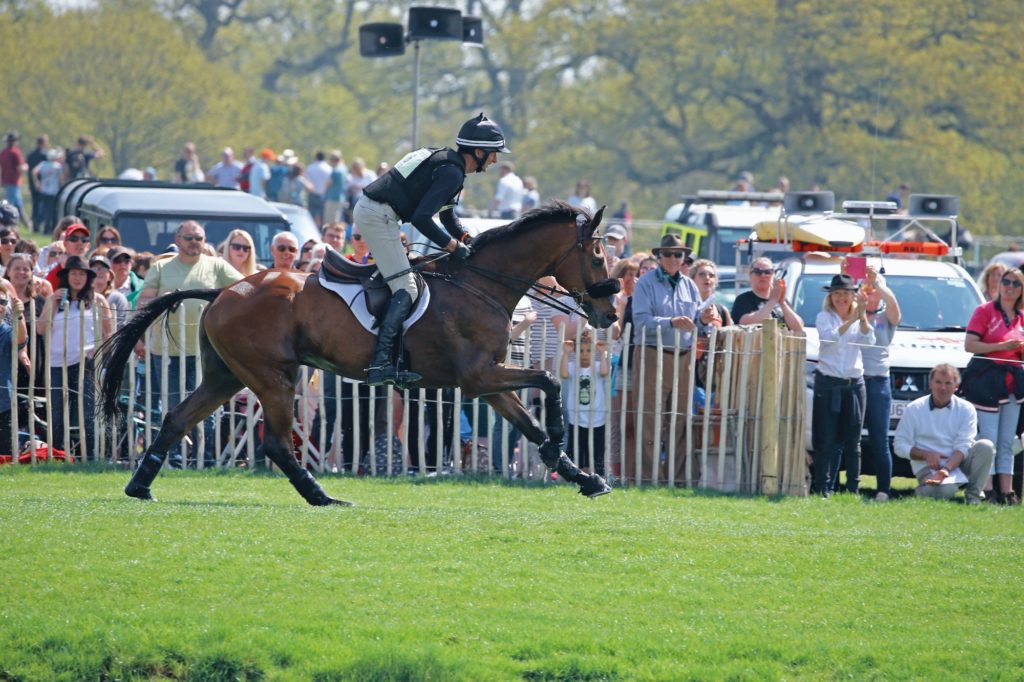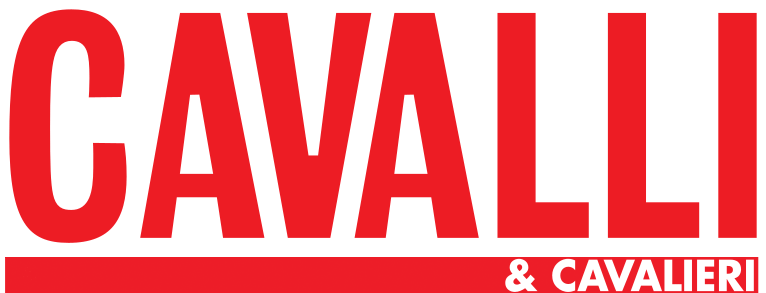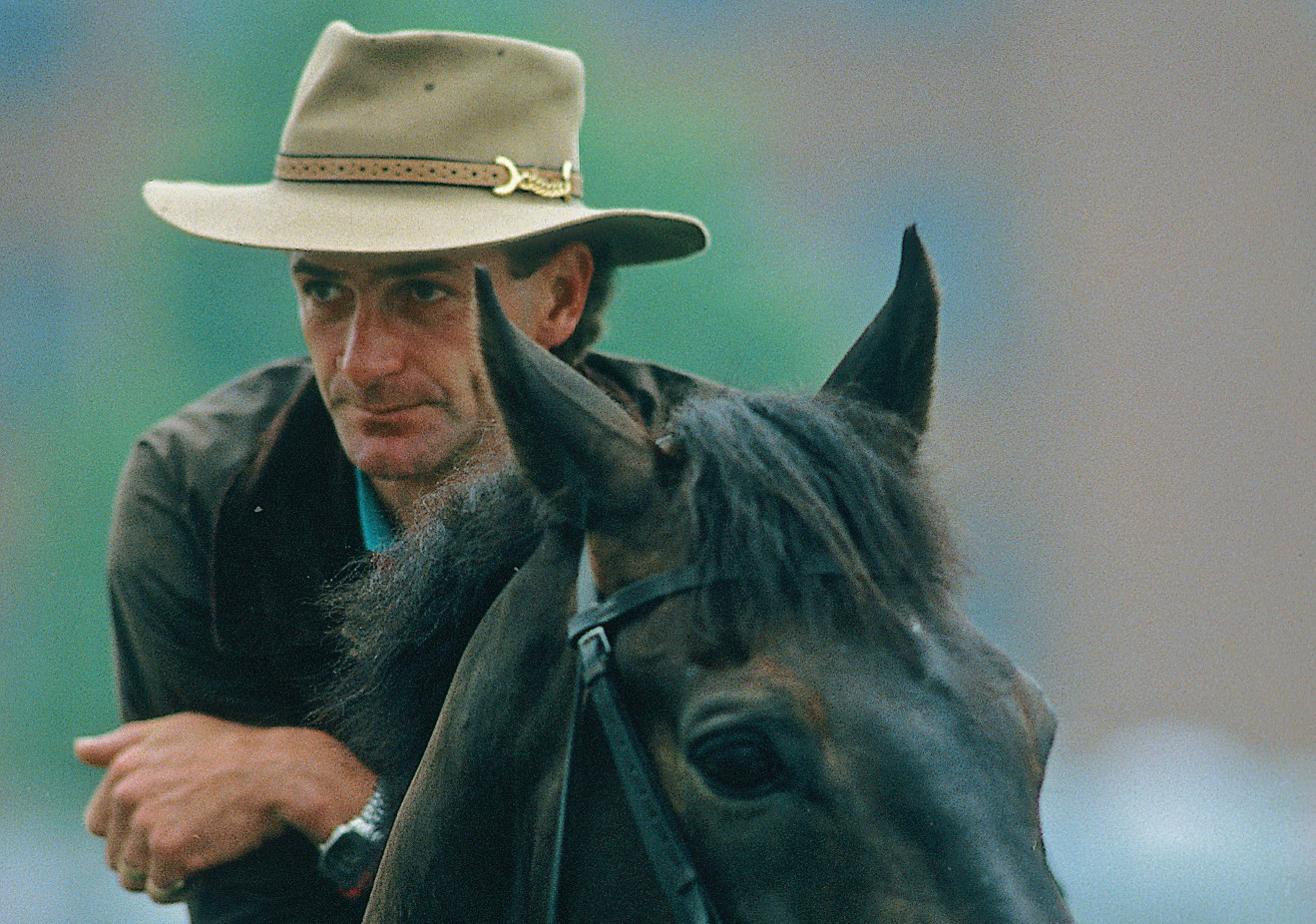INTERVIEW
SIR MARK TODD
A NAME CARVED IN OUR HISTORY
Verdiana Diaris – Susanna Cottica
Sir Mark Todd is among New Zealand’s most celebrated sportsmen with two Olympic gold and three bronze medals, and every other major title available to him in the sport of three-day eventing.
Born in Cambridge (NZ) in 1956, Todd grew up with an incredible passion for horses. Todd was a pioneer of three-day eventing in New Zealand.
Endorsing his international reputation as a superb horseman, he was voted the Event Rider of the 20th Century by the International Equestrian Federation in 2000. The highest peaks are his two Olympic gold medals on Charisma, in 1984 in 1984 (Los Angeles) and 1988 (Seoul). In 1992 he took part in the Olympic Games in Barcelona in both show jumping and eventing disciplines. (Show Jumping-Double Take/Eventing-Welton Greylag). Mark started his career in Eventing and Show jumping after realising that he was too tall to achieve his dream of becoming a Jockey.
After a successful 22-year career, which included two Olympic Gold medals, three Badminton wins, five Burghley wins and many other victories, in 1919 Mark, his wife Carolyn and his family relocated back to New Zealand to pursue a new career in breeding and training racehorses. Now back in the UK, the Mark Todd Racing stables are situated in Foxhill nestled in the Marlborough Downs. There are 40 stables on 130 acres of rolling countryside. So that horses can compete at their best it is important to make sure that they are well looked after and have top facilities to train in. Horseman and rider of a boundless experience, we have interviewed him to know his feeling with horses and today’s sport.
Your experience as an international rider and horseman is huge: what are your philosophy and your method?
If you are starting a horse from scratch or from novice level, the most important thing in the training is to get the basics correct. If you don’t cut corners at the beginning and you make sure that the basics are established both on the flat and in the jumping, then you have the good foundation for the future. The other very important thing is patience, you must form a relationship with the horse, it has to be a relationship of mutual respect.
You must respect the horse for what he is able to give you and you also need to make sure the horse understands what you are asking and be very clear in your requests. Also, the horse must respect the rider.
It is like raising a child, the horse must respect the boundaries and he can’t step outside them.
Especially with jumping horses it’s important that they think for themselves, they need
to be obedient and listen to the rider, but they can’t be completely relying on him.
It doesn’t matter how good you are at jumping, there is always going to be times when you need to rely on your horse, you don’t want to be taking away his natural instinct.
It is important for me, particularly on the flat, that the horse learns to understand the aids correctly.
He must go forward from the leg, listen to the hand. Once you have this right you have a good base to work on.
All the basics of the training start from there, the horse must go forward from the leg and be obedient and also respect and understand the hand.
It is the rider’s responsibility to teach that to the horse. You must be the best rider and teacher you can for your horse. This is the rider responsibility.
All horses develop at a different rate, if you feel your horse is struggling with something you need to allow him to stop and catchup, you must always make the work interesting, so it doesn’t become monotonous and boring.
Horses do thrive on routine and regularity, but I don’t think that work should ever be boring for them.
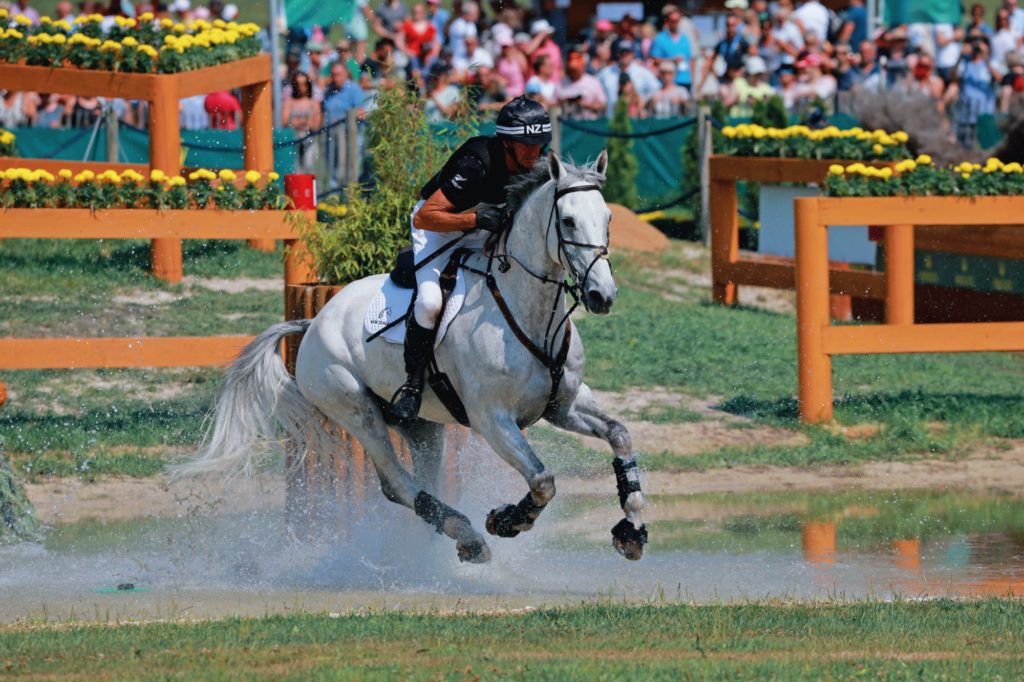
The Olympics are on our doorstep: what do you think about the new formula with three riders in the team?
To be honest I think everybody is going to wait and see how this new formula works after Tokyo, and if it does work.
I think the biggest thing is finding out if this new formula will keep eventing in the Olympics for longer or is it going to have detrimental effect on the sport. That I don’t know.
In my experience when they change format the same riders, the best riders still end up winning, I can imagine if you are only allowed 3 riders per team and one of them gets eliminated…
I think the sport is very popular though, I was teaching in France not so long ago, and they said for the Olympics Cross country tickets have already sold out; I think they could have sold at least double of the tickets.
So, there is not really a lack of popularity. For sure it is a very expensive sport to bring to the Olympics, and a lot of riders aim to get there so it would be a shame for them to lose that opportunity.
So, if this new system works and it keeps us in the Olympics a bit longer then fair enough.
The sport is changing all the time, even since I stopped 5 years ago. Particularly in England we are losing a lot of those Great Old-fashioned events such as Barbury Castle and Blair Castle in Scotland, these lovely more traditional cross-country courses.
I think it would be a shame if it’s going to end up being a glorified Arena eventing competition, but hopefully it won’t.
Nowadays the youngsters live on social media, they are in a rush to achieve all their goals. What is your point of view?
The biggest thing when you are young, I was the same, you want everything to happen at once and in a hurry, you are desperate to be successful.
You must be aware of everything that we said earlier. It is also very important that you have an experienced person that you can go to, you must manage your expectations.
You do see people competing at a level that is above where they should be at, they might have qualified to be there but maybe they should not be riding at that level just yet.
So, it is very important that you have somebody that you respect and that is knowledgeable who says ‘look, give yourself another six months, take more time, get established at a level that you are comfortable with and then move up.’
It is good that young riders have ambition and it’s good that they want to do it, but it’s important to keep the lid on, being sensible, sometimes we have to make mistakes to learn these lessons, you just have to hope that it’s never a serious mistake.
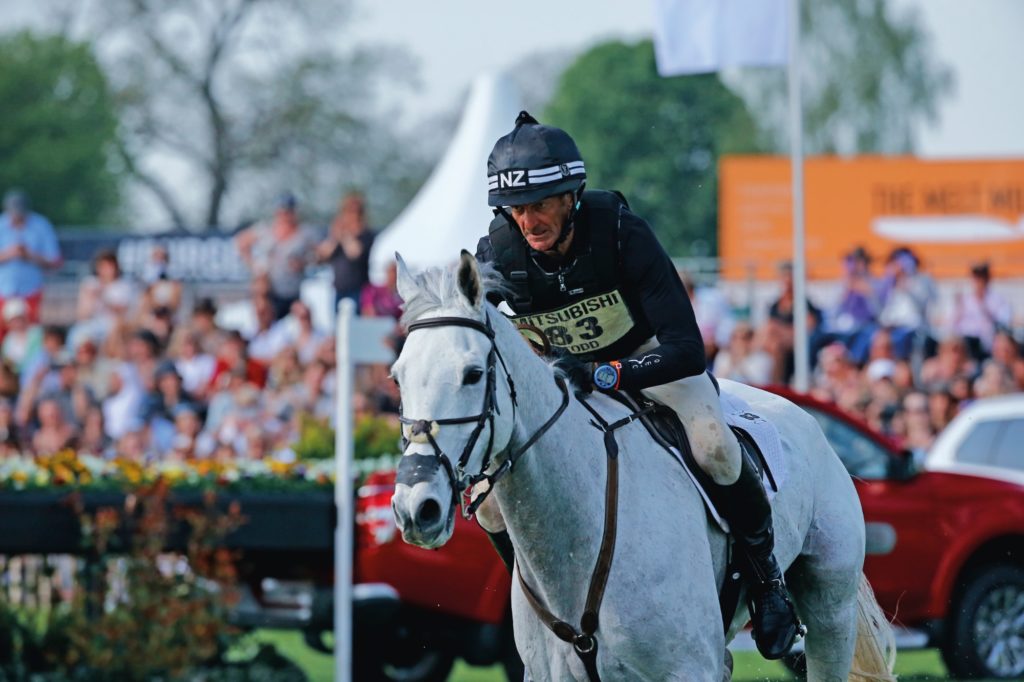
What is your advice to a young rider aspiring to become a great champion like you?
I read an interesting article, I think it was John Whitaker, when he grew up, he used to go to the side of the ring and watch the good riders warming up and competing. I did exactly the same and you learn so much from them.
owadays, young people do their thing, and they are on their phones doing something else immediately after. They are missing so much. There is so much knowledge out there now with the internet, but you can’t beat just watching and studying the best riders, whether they are show jumpers or eventers or dressage riders.
I used to watch jump jockeys as well, analysing what they do, how they train and ride their horses and why they are so good. And that’s the best teaching there is.
It’s then up to you to watch and learn and get out all you can. I see so many kids, even in my clinics…they are there but they are not really watching, they are looking but they are not learning and that’s the big difference.
Just to give you an example, when I was training the Brazilian team, I met Rafael Losano, he was around 15, he didn’t speak English, but he sat next to me all day while I was teaching, and he just watched.
And that’s why I got him to come to England, he was a kid that wanted to learn.
Talk to us about your relationship with the horses and which are the ones that have a special place in your heart?
I certainly got into riding horses just because I like them, I love working with them, I love them as an animal. I know there is some people that don’t share that love and they only love the competition side; they maybe don’t mean so much to them.
For me it is always important to understand each horse, try to understand what he is thinking.
If you strike problems, you must ask yourself why. Some horses are bit nervous, some of them are a bit flighty, some of them are a lazy… they are all individuals, so you need to try to understand each one to get the best out of them. You need to get the little things right, for instance some horses are better when they live outside, some horses don’t like a particular stable so it’s better if they are moved to a different one. You must understand the psyche of the horse and then it’s the training that completes it.
In general, they are wonderful and giving animals and we really need to understand and appreciate that. It’s a partnership, they must respect you and you have to respect them, and work within those boundaries.
The horses that have special place in my heart…of course Charisma for what he did in his two Olympics, but I was fortunate that I got to ride many good horses which were all different in lot of ways.
I think the common factor between all of them is that they were all atheletes, they all had good minds they all wanted to do the job. Obviously, Charisma stands out, but out of all the horses I have ridden there are others they were very good, like Horton Point that I only got to ride for a week before we won Badminton.
He was a very experienced and very well-trained horse, but I only rode him for 1 week. At Badminton I had to ride him but also let him do what he knew, so that was a special thing.
Then Bertie Blunt, when he went around Badminton with me bouncing on his back with only one stirrup, he was amazing to keep going. I always appreciate horses and how genuine they are.
We get a lot of critique sometimes, saying that what we do with horses is cruel, but you can’t make horses do what they don’t want to do, when they do all of that pretty much on their own it makes you realise how much they love it as well.
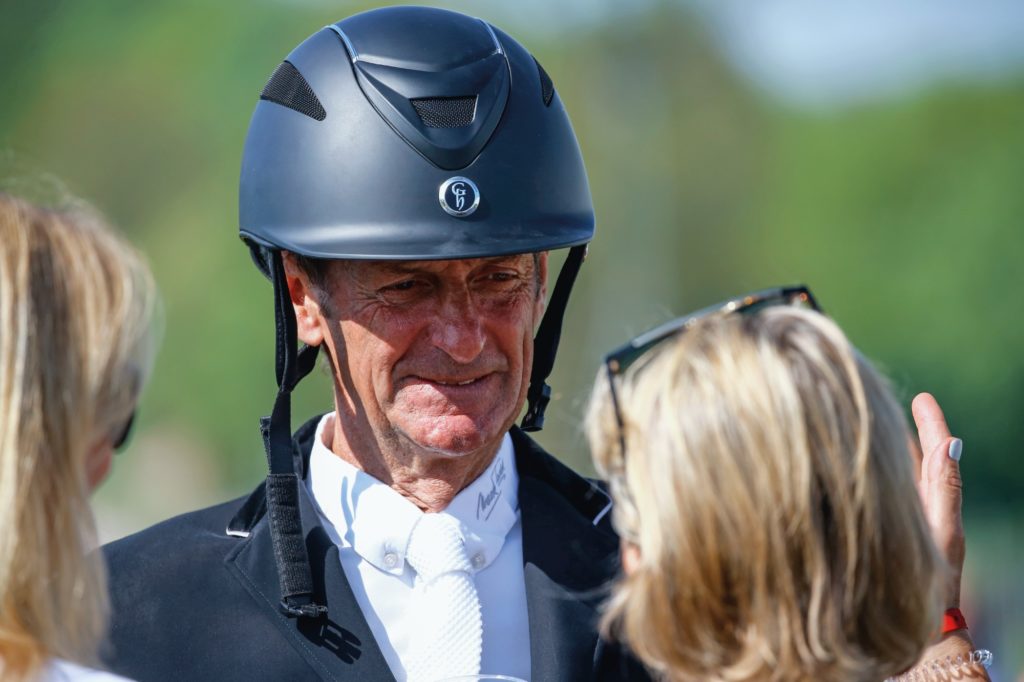
Nowadays the horse’s wellbeing is the focus. What does it mean for you ?
The best thing us riders can do is to have our horse as well prepared as we possibly can for the test he has got to do. Particularly in eventing fitness is absolute key. Equine nutrition is also important but fitness….
You see at these major competitions horses that are just not fit enough and that’s so unfair; that’s the rider’s jobs as well to make themselves fit enough to do the job.
You often see very unfit riders and they can’t possibly be any help to the horses going round a major Cross-country courses.
Since we lost the roads and tracks, which is quite a few years ago now, and more and more importance has been placed on the dressage I think people tend to forget the fitness side of things.
Obviously, the good riders do the job properly, they get the horses fit and that’s why they win. They leave no stone unturned; the horses are well prepared for the job, and they can make it look easy and that doesn’t happen just by chance.
It takes work and dedication to do that. You owe it to your horse to have him prepared and fit to the best of the ability for the job that he has got to do.
Have you ever imagined your life without horses?
No. Even now that I am nearing to retirement, I cannot imagine not having horses in some form.
They are such wonderful creatures; we have been fortunate that we have done eventing, show jumping, racing, we have bread horses.
There is so many aspects to this. All of them have been wonderful in their own ways and have given us enjoyment.
Have you got one dream you still want to come true?
I am nearing to the end of my horseracing training career. I was fortunate enough to win a race in New Zealand at the highest level, group 1. I haven’t done that in England.
I would really love to do that before the end of my career, but I don’t have the same burning desire that I had when I was 20 years younger.
I have a very nice young horse now, he won last Sunday, he could possibly do something for me but if it doesn’t happen it doesn’t matter, I am much more philosophical about it now.
I have been so fortunate in my life with the horses, I had a very good eventing career, I won show jumping competitions and racing
competition at the highest level, I don’t want to be too greedy.
But my competitive instinct is still there…
